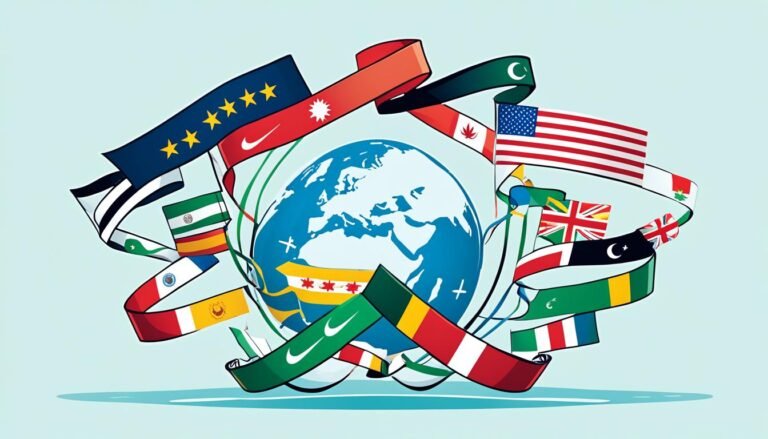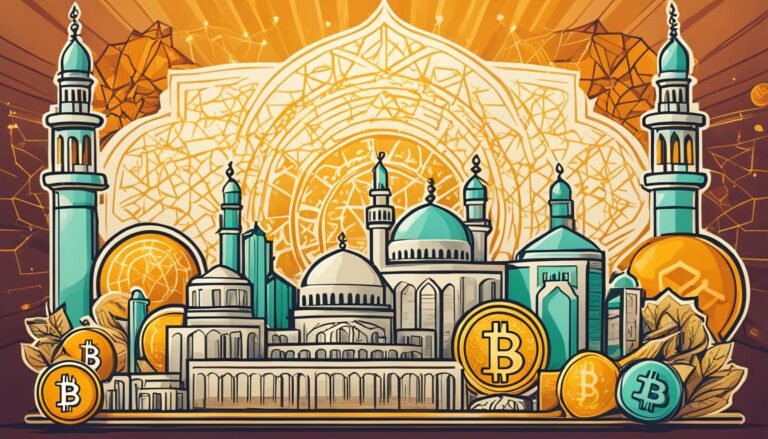Islamic Economics: Theoretical foundations and practical implications
Have you ever considered how integrating spirituality and ethics into economic systems could reshape our understanding of prosperity and justice? Islamic economics challenges conventional beliefs by emphasizing moral frameworks within financial practices. As the discipline gained traction in the 1970s, particularly in countries like Iran and Pakistan, it has emerged as a significant area of study that rivals traditional economic theories.
With a surge of interest in Islamic finance, highlighted by the establishment of the Journal of Research in Islamic Economics in Jeddah, we explore how Sharia-compliant economics not only seeks to eliminate interest but also addresses broader economic behaviors, such as resource allocation and income distribution. This synthesis of ethical principles and economic functionality raises essential questions about the viability of Islamic economic models in today’s world.
Understanding Islamic Economics
Understanding Islamic economics involves grasping its foundations rooted in values derived from the Quran and Sunnah. This discipline emphasizes the importance of ethical and equitable financial practices. Students and scholars explore Islamic economic principles to develop systems that not only promote financial conduct but also ensure social welfare.
The Halal economy plays a crucial role in this context, focusing on activities that comply with Islamic laws. By avoiding interest (riba) and promoting fairness in transactions, Islamic economics provides a framework aimed at both communal prosperity and individual well-being. As a distinct discipline, it aims to bridge ethical norms with practical economic solutions.
Islamic economic theory presents itself as a “third way,” differing from traditional capitalist and socialist models. Early forms of capitalism emerged during the Islamic Golden Age, demonstrating that these principles have historical roots. This legacy showcases how Islamic economies adapted to promote justice and prevent economic exploitation.
Over recent decades, there has been a revival of interest in Islamic economics. Academic institutions worldwide offer numerous resources, with over 35 published books in the “Islamic Business and Finance Series.” Notable titles, such as “Islamic Financing in the Financial Markets of Europe, Asia, and America,” explore the intersection of contemporary finance and Islamic principles. As scholars continue to delve into these topics, Islamic economics stands poised to influence future economic thought, merging faith with enterprise.
Historical Context of Islamic Economic Thought
The roots of Islamic economic thought lie in a rich historical context spanning several centuries. During the Islamic Golden Age, from the 8th to the 14th centuries, the Caliphate fostered an early market economy characterized by significant developments in merchant capitalism. Trade networks flourished, stretching from the Atlantic Ocean to the South China Sea and encompassing vast regions of Asia, Africa, and Europe.
Islamic economic history highlights the establishment of welfare systems as early as the 7th and 8th centuries, aimed at supporting the vulnerable, including the elderly, orphans, and the disabled. Business collaborations captivated diverse groups, with Muslim, Christian, and Jewish merchants forming partnerships. Hospitals, funded by Islamic institutions in the 11th century, emerged in every Islamic city, serving the community’s health needs.
As the Islamic Golden Age progressed, Muslim scholars contributed significantly to the evolution of economic thought. They bridged the gap between ancient Greek philosophy and later scholastic economics. This interaction fueled debates around fundamental economic concepts — such as value, pricing, production, and distribution. These early discussions laid the groundwork for modern Islamic economic thought.
The 20th century marked a pivotal transformation in Islamic economic history, establishing Islamic economics as a distinct discipline. Scholars like Muhammad Abduh and Abul A’la Mawdudi engaged in vigorous debates regarding riba, leading to the emergence of two primary schools of Islamic economic thought. The aspiration-oriented and reality-oriented schools reflect divergent views on the practical feasibility of Islamic finance.
This dynamic interplay of theory and practice continues to shape contemporary discussions within Islamic economic thought, emphasizing a human-centric economic system aligned with Islamic values. The enduring significance of these debates and practices highlights the vibrant legacy of Islamic economies throughout history, influencing modern interpretations and applications of Islamic finance and commerce.
Islamic Economic Principles
Islamic economic principles are deeply rooted in the teachings of the Quran and Sunnah, guiding believers towards ethical financial practices. One of the cornerstones of these principles is the prohibition of riba, or interest, which emphasizes fairness in trade and discourages exploitation. This creates a foundation for a Sharia-compliant economics model that prioritizes social justice and equity.
Another key aspect is the practice of zakat, a form of obligatory charity aimed at redistributing wealth within the community. Zakat serves to diminish the gap between the rich and the poor, fostering an environment of mutual support and financial sharing. It reflects the Islamic commitment to societal welfare, encouraging individuals to contribute actively to the betterment of their communities.
The Islamic economic system often presents itself as a “third way,” distinct from capitalism and socialism. It seeks to combine the benefits of both systems while avoiding their respective pitfalls. This model has led to an increase in Islamic entrepreneurship, as Muslim business owners aim to align their ventures with ethical standards dictated by Islamic teachings.
Moreover, Islamic economics advocates for transparency and accountability in business transactions. The principles encourage equitable risk-sharing and profit-sharing arrangements, further establishing a system that cultivates trust among community members. Thus, Islamic economic principles effectively promote a moral economy, guiding economic activities not only towards profitability but also towards fulfilling social responsibilities.
Islamic Banking and Finance
The evolution of Islamic banking and finance highlights a unique framework that operates in alignment with Islamic finance principles. This system has gained momentum in recent decades, serving communities through ethical financial practices. The foundational role of Sharia in financial transactions ensures that all operations meet specific guidelines, creating a system that emphasizes fairness and responsibility.
The Role of Sharia in Financial Transactions
Sharia-compliant finance underpins the structure of Islamic banking, allowing transactions to uphold ethical standards. Islamic banking prohibits riba, or interest, recognizing its unjust implications, including poverty and inequality. In this framework, excessive uncertainty, referred to as gharar, is also avoided. Financial institutions follow these guidelines to ensure all products are in strict adherence to Islamic teachings.
Key Features of Islamic Banking
Islamic banking incorporates innovative features that distinguish it from conventional banking. Notable aspects include:
- Profit-sharing models: Mudarabah and musharakah arrangements allow for collaborative ventures where profits are shared equitably.
- Asset-backed financing: Transactions must be tied to real assets, ensuring that investments are grounded in tangible value.
- Sukuk: These Islamic bonds offer a Sharia-compliant alternative to conventional bonds, promoting Halal investments.
- Takaful: An Islamic insurance model that fosters mutual assistance among participants, emphasizing social responsibility.
By encouraging risk-sharing rather than risk transfer, Islamic banking promotes economic stability and fairness among all parties involved in financial transactions. This approach not only aligns with Islamic finance principles but also addresses the growing demand for ethical finance post the 2008-2009 financial crisis.
Islamic Economic Systems: A Comprehensive Overview
Islamic economic systems are rooted in Sharia-compliant principles designed to guide economic interactions in Muslim societies. These systems underscore the relevance of ethical practices, aiming to foster a Halal economy that benefits both individuals and the community at large.
The Quran highlights the importance of economic activities for human subsistence, recognizing that material well-being holds significance in this life. This perspective aligns with the dual nature of man, as Islamic teachings encourage a balance between seeking worldly goods while being mindful of the Hereafter.
Key features of Islamic economic models include:
- Promotion of wealth circulation, ensuring it does not solely benefit the affluent.
- Recognition of natural disparities in talent and abilities among individuals, while advocating against complete wealth equality.
- Encouragement of competition, collaboration, and individual freedom aimed at spurring progress and innovation.
Islamic economic systems impose obligations on the wealthy, requiring them to contribute to societal welfare through taxes and charitable acts. This principle promotes a fairer distribution of resources and diminishes the risk of immoral exploitation or wealth hoarding. Charity and sacrifice are core virtues within this economic framework, emphasizing the dignity of giving over begging.
Additionally, Islamic teachings on inheritance acknowledge the balance between a person’s right to manage their wealth and their responsibility to the society that nurtures them. This holistic view aims to ensure that individual prosperity does not come at the expense of communal welfare.
The growth of globalization has significantly influenced economic interactions, leading to rapid developments in international financial transactions. Nonetheless, the rise of speculative motives within these transactions has often overshadowed genuine trade and investment. Islamic economics offers an alternative that emphasizes ethical norms, with strict prohibitions against practices like interest (riba), uncertainty (gharar), and gambling (maysir).
In a world marked by both capitalist and socialist critiques, Islamic economic systems present a framework promising justice and equity. By prioritizing the pursuit of fortune through Halal means and enforcing overall fairness in income distribution, these systems address not just material needs but spiritual aspirations, pushing for a balanced and prosperous society.
Comparison with Conventional Economic Theories
The landscape of economics is diverse, presenting contrasting frameworks for understanding and managing economic activities. At the heart of this discussion lies the comparison with conventional economics, particularly regarding the underlying worldviews and the focus on efficiency and equity. Islamic economics, which emerged in the 1960s, offers a perspective that significantly deviates from established conventional theories, which have been around since the 18th century.
Differences in Worldviews: Secular vs. Religious
Conventional economics typically operates from a secular standpoint, focusing on material gain and self-interest without delving deeply into ethical implications. This secular vs. religious worldviews dichotomy is vital. Islamic economics, in stark contrast, is deeply rooted in religious teachings, drawing from the Quran and Hadith. This integration introduces ethical considerations that promote a balance between both spiritual and material aspects of life, allowing for a more holistic approach that considers human welfare as central to economic activities.
Efficiency and Equity: Approaches in Islamic Economics
In the realm of efficiency in Islamic economics, the emphasis is placed on aligning efficiency with equity, a divergence from conventional approaches that often prioritize unfettered self-interest. Islamic economics advocates for fair distribution and the leveling of socio-economic disparities. This perspective fosters governance structures promoting moral behavior in economic transactions, which ultimately enhances collective well-being versus individual profit maximization. The principles of unity, balance, freedom, and responsibility shape these economic approaches, ensuring that resource utilization aligns not only with efficiency but also with ethical considerations.
Practical Implications in Modern Economies
The framework of Islamic economics has significant implications for contemporary financial systems. A notable aspect is the rise of Islamic finance institutions, which provide a range of ethical financial products. This development not only attracts Muslim consumers but also appeals to ethically-minded investors seeking responsible alternatives to traditional banking practices.
Sharia-compliant banking practices encourage investments aligned with moral principles. Institutions embracing these practices are innovating financing options that avoid riba (interest) and gharar (speculation), promoting profit-sharing strategies like mudaraba and murabaha. Such models reflect an evolving understanding of ethical finance within a framework striving for social equity.
The ongoing concerns regarding wealth disparity, highlighted by rising Gini indices in major developed countries, reveal the urgent demand for new economic paradigms. Many nations now report Gini coefficients exceeding critical thresholds, prompting international efforts to address inequality through frameworks like the United Nations Sustainable Development Goals.
- Islamic economics integrates ethical considerations in economic transactions.
- Its models promote justice and stability, vital for sustainable development.
- By addressing socio-economic issues, Islamic finance aims for a holistic approach to economic wellbeing.
As we see modern economies facing increasing challenges related to income concentration, Islamic economic principles offer a viable route for achieving more equitable resource distribution. The historical context within which Islamic finance evolved further supports its relevance today by providing an ethical foundation distinct from conventional systems that often lead to social unrest.
The practical implications of Islamic economics are evident in the principles of reciprocity and redistribution promoted by thinkers like Karl Polanyi. Emphasizing human well-being beyond material success, this economic model offers a refreshing alternative to the prevailing secular focus on financial gain, seeking to create more harmonious and just societies.
Challenges in Implementing Islamic Economic Models
Implementing effective Islamic economic practices often encounters significant challenges in various contexts. One major hurdle stems from a lack of awareness and understanding of Islamic finance principles, particularly among non-Muslim populations. This creates challenges in Islamic economics as misconceptions about Islamic banking hinder its acceptance in broader markets.
Legal and regulatory issues further complicate the landscape. Barriers to Islamic finance implementation arise when establishing structures that comply with Islamic law. Different legal frameworks present significant barriers to establishing Islamic finance institutions worldwide, which can create challenges for the global integration of these systems.
Islamic financial institutions must also contend with stiff competition from established conventional banks. These entrenched financial systems can resist the growth of Sharia-compliant alternatives, posing a significant challenge to the expansion of Islamic finance.
In addition, creating and developing Sharī’ah-compliant financial products such as Sukūk for liquidity management remains a notable concern. The need for a robust liquidity management infrastructure is crucial, especially after the global financial crisis, highlighting the importance of effective Islamic economic practices.
The financial crisis illustrated the distinctive features of Islamic finance, including its focus on the real sector and risk-sharing mechanisms. Islamic financial institutions largely avoided toxic assets during this period, adhering to Sharī’ah principles. Despite this resilience, providing emergency liquidity support to Islamic banks during crises has progressed slowly in some jurisdictions.
Finally, Islamic economics faces ongoing debates regarding the definitions of riba and other fundamental concepts, which can complicate the enforcement of Islamic finance contracts. These intricate discussions reflect the tension between aspiration-oriented and reality-oriented approaches to Islamic economics, revealing the depth of challenges that persist in implementing effective Islamic economic models.
Case Studies: Successful Islamic Economic Practices
Numerous examples illustrate the feasibility of successful Islamic economic practices in meeting modern financial requirements while strictly adhering to Sharia principles. Notable Islamic finance case studies highlight institutions like Al-Rajhi Bank in Saudi Arabia, which has demonstrated remarkable growth while conforming to Islamic finance rules. These achievements shed light on how Islamic principles can pave the way for sustainable and profitable financial practices.
In addition, the rise of microfinance initiatives in various regions, particularly Indonesia, showcases the impact of Islamic finance on poverty alleviation. Empowering local entrepreneurs through halal business endeavors exemplifies how these measures can foster economic resilience. The successful integration of microfinance programs aligned with Islamic principles emphasizes their capability to drive systemic change and promote financial inclusion.
The success of Islamic banking extends beyond single institutions and microfinance. It reflects a broader trend where examples of Islamic banking success are increasingly visible in global markets. The focus on ethical solutions and social responsibility positions Islamic economics as a viable alternative in contemporary financial landscapes. These case studies serve not only as proof of concept but also as a beacon for future innovations in Islamic finance.
Islamic Economics: Theoretical foundations and practical implications
Revisiting Islamic economics reveals a profound framework conducive to understanding its theoretical foundations. These foundations position Islamic economics as an effective alternative to conventional systems, promoting equity through moral and ethical guidelines. Advocates stress the importance of principles such as the prohibition of interest or ribā, collective responsibility through Zakat, and emphasis on profit sharing, establishing meaningful practical applications in finance.
Recent research, particularly a study published in the Journal of the Knowledge Economy, underscores the evolution of Islamic finance, noting its adaptability over time. The investigation concentrated on various factors affecting the growth of the Islamic banking system in Pakistan, emphasizing the vital role of innovation and political support in enhancing customer knowledge. This highlights how theoretical insights inform practical applications, significantly impacting financial systems.
Islamic economics serves as a bridge between ethical values and modern financial practices. As society increasingly seeks sustainable and socially responsible investment options, the principles of Islamic economics offer a reassuring, robust framework. Emphasizing community welfare and resource-sharing, it promotes a balanced approach that addresses the needs of both individuals and society at large.
Ultimately, the study of Islamic economics illustrates its critical relevance in contemporary economic discourse. By synthesizing theoretical foundations with actionable strategies within finance, it emerges as a viable solution to current economic challenges, reinforcing the importance of ethical paradigms in shaping economic realities.
Conclusion
In summarizing the profound insights of Islamic economics, it’s clear this discipline combines ethical principles with practical financial strategies, ensuring that both individual and community needs are met. The implications for the future are particularly compelling, as integrating Islamic finance into modern economies presents opportunities for sustainable growth, equity-focused models, and improved social welfare.
The unique role of Islamic finance in promoting social justice, ethical decision-making, and community welfare positions it as a relevant alternative that resonates with contemporary economic challenges. As scholars continue to explore the foundations of Islamic economics, there is potential for transformative impacts on financial inclusion and broader societal harmony.
Future discourse on Islamic economic principles will likely enhance the understanding and application of ethical economic strategies, paving the way for a more equitable landscape. This evolution invites us to contextualize Islamic economics not just as an academic subject but as a vital pillar in shaping a more inclusive and culturally sensitive economic framework.
Source Links
- No title found
- Islamic economics
- Islamic Business and Finance Series – Book Series
- What It Is and How It Developed – EH.net
- History of Islamic economics
- An economic theory of Islamic finance
- Microsoft Word – Final Version of Survey with changes by Dr Siddiqi latest 17.9.06 to press.doc
- Islamic banking and finance
- ECONOMIC SYSTEM OF ISLAM -AN INTRODUCTION-
- Paper Title (use style: paper title)
- Microsoft Word – 16. Tarmizi_Comparison of Islamic Economic.docx
- Differences between Islamic economics and conventional economic models? | 4 Answers from Research papers
- Islamic and capitalist economies: Comparison using econophysics models of wealth exchange and redistribution
- No title found
- Islamic Development Bank
- Islamic macroeconomics?
- No title found
- Comparative Study of Islamic Economics and Other Schools of Economic Thought: Evaluating their Merits and Analyzing Global Adoption







